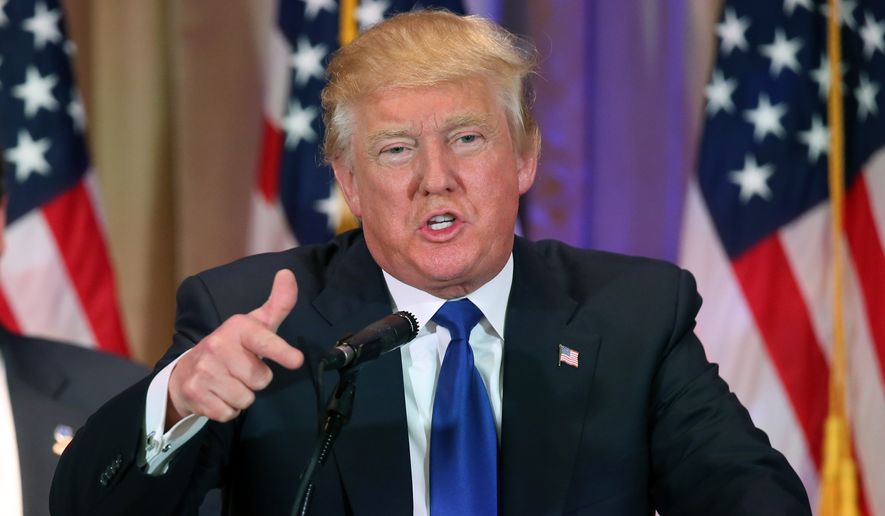Republicans continued to shatter turnout records in their presidential primaries and caucuses Tuesday, while Democrats lagged behind in what analysts said was a clear indication of an enthusiasm gap heading into the general election.
Virginia’s GOP primary tallied more than 1 million votes, shattering the record set in 2000 by more than 50 percent. Democrats, meanwhile, were 200,000 votes shy of their own record, set in the contested 2008 primary.
In Tennessee, GOP turnout crossed the 800,000-vote mark, leapfrogging the previous record by nearly 50 percent.
Records were also likely to be set in Georgia, Texas, Alabama, Arkansas, Oklahoma and Massachusetts.
Democrats, though, were struggling, seeing turnout drop by massive levels in all of their races Tuesday night. That included Vermont and Arkansas, where their two candidates had home-state advantages of sorts, yet still couldn’t match the enthusiasm of the 2008 contest.
GOP presidential front-runner Donald Trump said he’s the chief reason for the shifts in both parties, saying he’s drawn Democrats and independents into the Republican process this year, boosting his party at the expense of Democrats.
SEE ALSO: Donald Trump racks up Super Tuesday wins in Deep South, Virginia, Mass.
“The Republicans have tremendous energy. The Democrats don’t,” he said at his victory party.
All told, about a dozen states held caucuses or primaries on Tuesday.
The strong GOP showings Tuesday follow record turnout in the first four contests: Republican turnout in Iowa, New Hampshire, South Carolina and Nevada was up 27 percent compared to 2012.
By contrast Democrats’ turnout is down 25 percent compared to their record-setting 2008 campaign, when then-candidate Barack Obama faced off against Hillary Clinton, who is trying again this year.
That 2008 campaign saw contests on both sides of the aisle, and vote-counters said the deep interest in Democrats’ race that year drew voters away from the GOP and into the Democratic primary.
Mr. Obama won the nomination and went on to an easy victory in November, drawing minorities and young voters into the process.
PHOTOS: Top 10 handguns in the U.S.
Analysts said the enthusiasm this year is on the Republican side, and said Mr. Trump is driving much of it. They also said they expect that enthusiasm to carry over as the race continues.
“I think it’s a harbinger of things to come,” said David Yepsen, director of the Paul Simon Public Policy Institute at Southern Illinois University. “All those people who line up for Donald Trump rallies and also lining up at the ballot box and the caucus site. Trump’s winning and nothing succeeds like success.”
Turnout has been strong for Republicans across the board. Iowa, which kicked off the campaign season, saw a 50 percent increase for Republicans over their previous record. Indeed, turnout was so high that Mr. Trump and Sen. Marco Rubio, the second- and third-place finishers, got enough votes that they would have won in any previous year.
Democrats, though, said they’re still happy with their turnout.
Luis Miranda, the Democratic National Committee’s communications director, who has been tracking turnout, says it’s unfair to compare the GOP’s turnout, spread among a big field of candidates, to Democrats’ turnout, with just two candidates still in the race.
“While turnout for Republicans in these early contests has increased over their previous baseline, it has NOT matched the level of spending or the size of their field,” he wrote in a memo last week.
“The 80,000 Democrats turned out to caucus across Nevada by just TWO Democrats was more than the 75,000 Republicans who were turned out by SIX Republicans. In New Hampshire TWO Democrats turned out 247,000 voters, while EIGHT Republicans turned out just 279,000. And in Iowa TWO Democrats turned out nearly as many caucus-goers as ELEVEN Republicans,” Mr. Miranda wrote.
• Stephen Dinan can be reached at sdinan@washingtontimes.com.




Please read our comment policy before commenting.